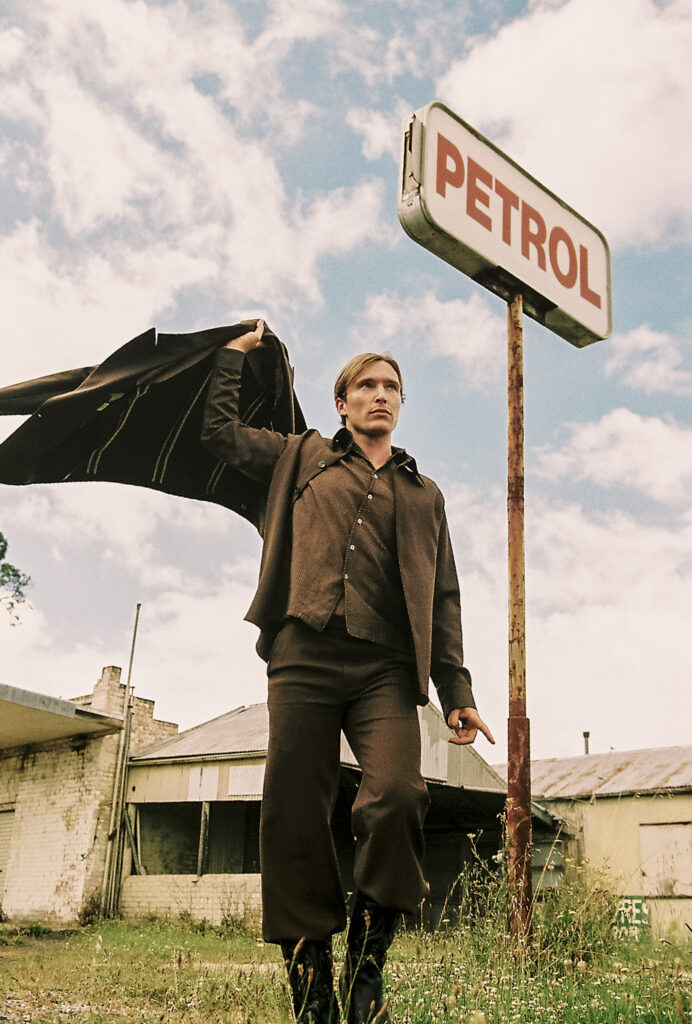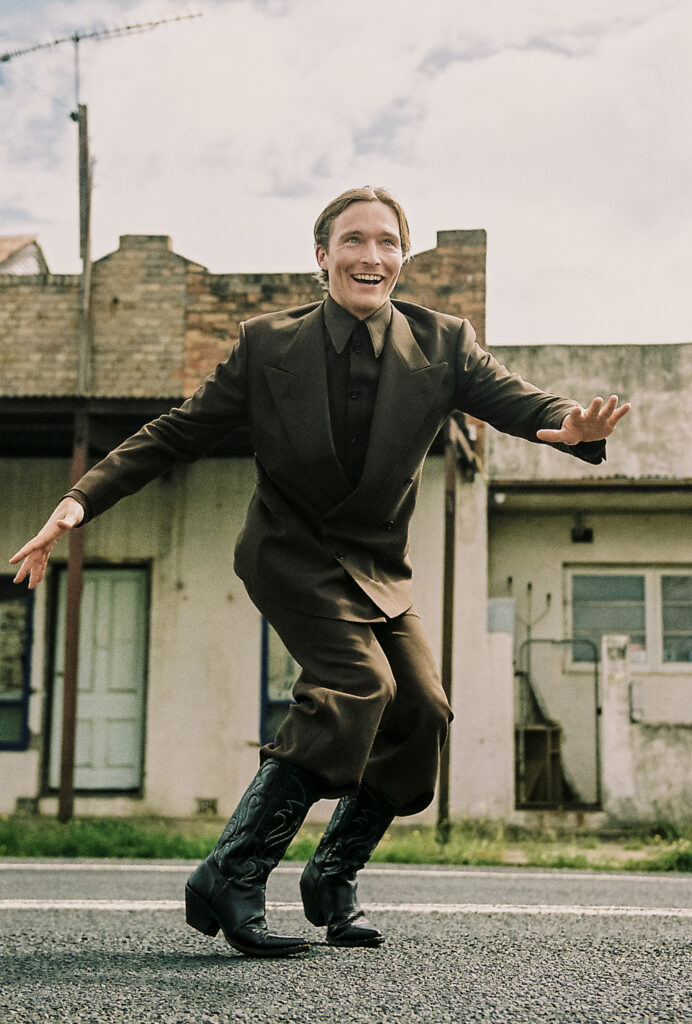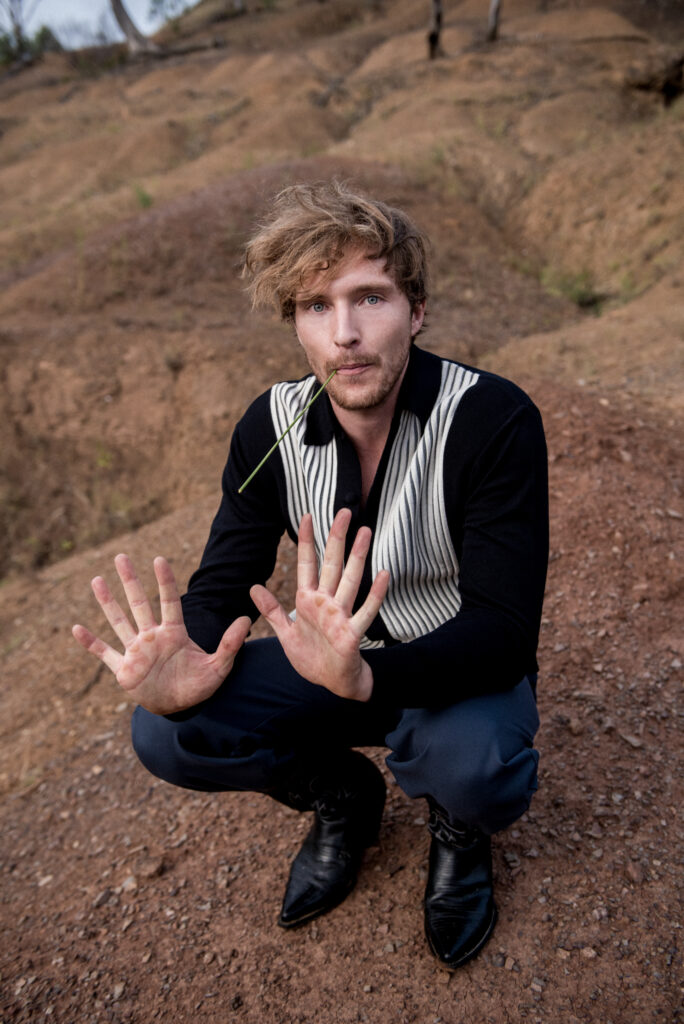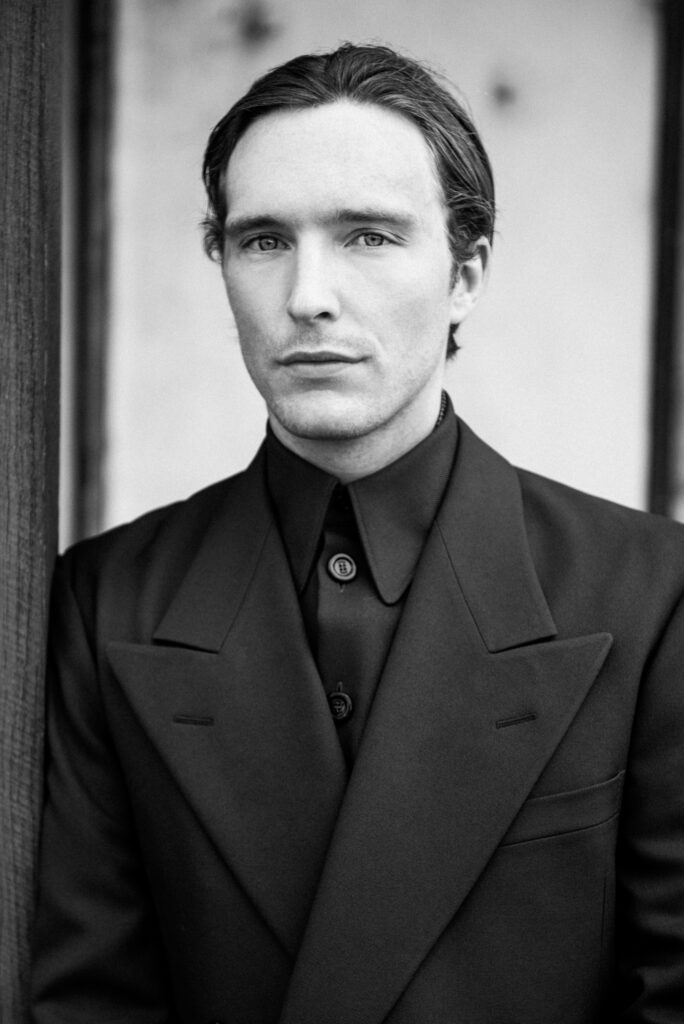Sean Keenan: Acting, Impenetrable Punk Groups and Everlasting Bonds
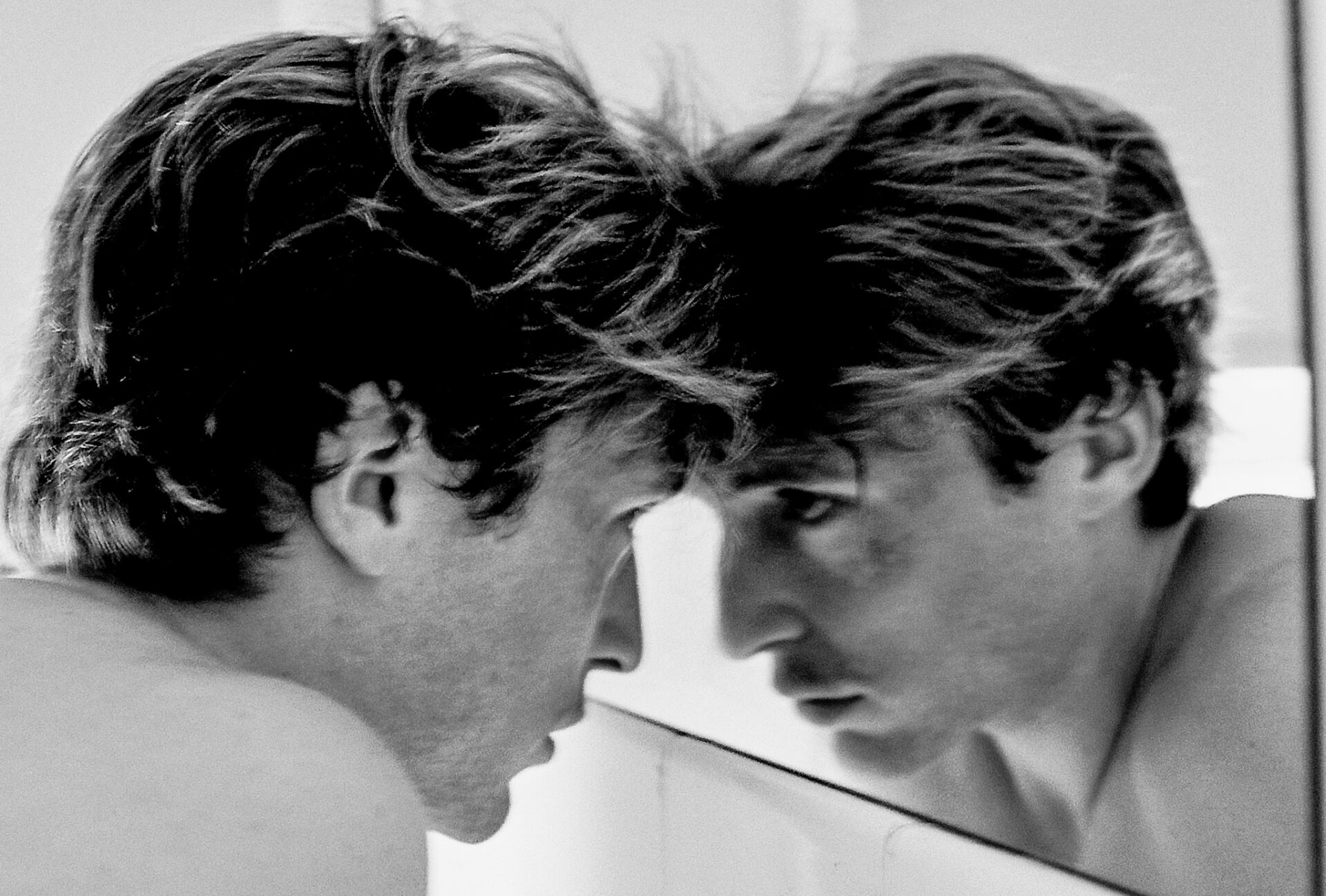
styling ROMY SAPPHIRE
hair JOEL FORMAN
From a young age, Sean Keenan had a script in his hand and a camera cast upon him. As a child, his mother would rent out handy-cams to make short films—the perfect way to begin an acting career. You’ll most likely remember Sean from his early acting days, as one of the lead characters in Puberty Blues or Lockie Leonard. Since then, he has played major roles alongside big names in Australian and international cinema and theatre. Catching up with Sean, we spoke about his entry into acting, working on True History of the Kelly Gang, his inspirations, and what keeps him focused.
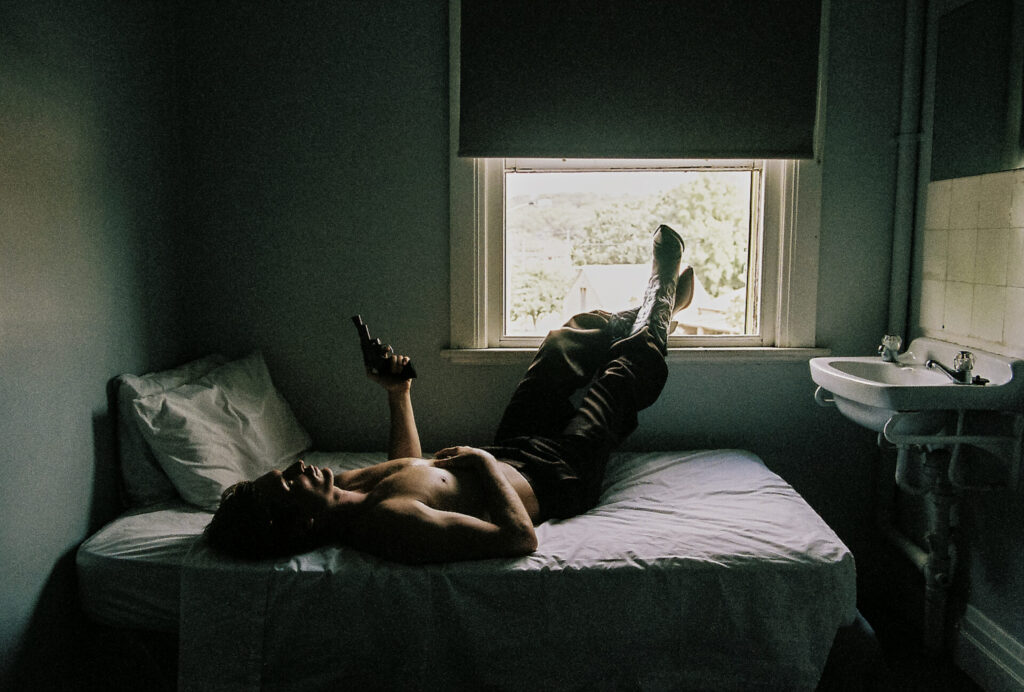
Sean, tell me about True History of the Kelly Gang and what it was like to film – it looked pretty fun!
Yeah! Far out, it was whacky. Part of the rehearsal process was starting a punk band with the four of us – me, George, Earl and Louis – in dresses as well. Yep, just get in the dresses and play in our punk band! We would spend half the day as the band and the other half rehearsing. This meant that when we came to shoot, we were this little impenetrable unit. We felt like no one could take away what we’d built between us. We were the gang. And that was just the start of it. Freezing cold locations, blizzards, 360-degree set and mostly hand-held cameras – it was like guerrilla filmmaking!
How do you get into character? I know everyone’s different, so what’s your process?
Do as much research as I can. Every part is different and you service every part differently. Starting with the script, I try not to overwork it. In terms of the scenes, I try and compare as much as I can … for example the film with Justin, playing a character who’s only in a few scenes, you need to do more work outside so you come with a fully realised character. Even though the offerings and the options for every character are limitless, you want to have a backing for every decision you make for that character. How is this character different from me? What are their likes and dislikes? What would tick them off. What would make them happy or get under their skin? Then, in thinking about the character as a separate psychological entity from you as much as you can, you kind of try to get as much information from the script, or text if it’s a play. The rest is where you can get creative and add in little pieces of anything you want, and that’s pretty exciting. And then you learn your lines and work on, but yeah, it’s not about thinking how you’ll deliver all those lines. I like to put in all of the work and then when you arrive to the moment or the day of shooting all that work just informs what happens. But really, you don’t want to overwork what happens, because that’s when those spontaneous moments emerge… and that’s what makes film so great.
The moments in film that are my favourite moments, after I’ve read up about them I find that they are usually those spontaneous moments. They can happen sometimes earlier in a take or sometimes they can happen out of frustration after so many takes. It’s like all of that preparation comes to a point where someone is reacting really truthfully and spontaneously. So keeping myself open but being prepared is my process. And then psychologically, I guess some jobs just give you more freedom.
What have the directors you’ve worked with been like?
Luckily I’ve worked on jobs where the directors really love actors, they love what actors bring and they love creating a world where we’re completely free to just be, which is great. You don’t always get that.
I have a curious question. In the acting world, are method actors and non-method actors two different breeds?
I think that method acting is fascinating and serves a purpose that is almost second to none. You see the actors who use that process and to me it just produces such a superior result, but it’s not easy to pull off. To maintain character for three months without breaking it takes intense focus, but you also want to be free to relate to the crew. On my last two jobs, the one in Aoteraoa, New Zealand and the one in Geelong, the lead actors were staying in character for the entirety of the shoot and they did it in quite different ways. They were playing quite different characters. The one in Geelong was a young American guy playing a character that was quite cheeky and fun and then could turn on a dime and be quite petulant and aggressive. In a way he actually had a lot of fun with it and could relate to the crew in character.
Haha, that would have been interesting.
Now the actor in Aotearoa, New Zealand, who’s a really great actor—when it comes out you’ll see who I’m talking about—played a character that was quite held, quite hard and a bit of a solitary man who keeps his thoughts to himself. Which meant that to stay in character all day was a bit more taxing, he couldn’t really have fun and joke around and you need those moments of levity when you’ve been working for a month on a set. If you can find that right balance with a character, or be able to isolate for that amount of time, I think that process is second to none and far superior. I would really be interested to try it and, in an unspoken way, I’ve used it in moments, although I’m not the type of person who will show up in the morning on set and introduce myself as the character and only wear their clothes. But if there was a moment and a part which I believed would be serviced by that process, I would go for it.
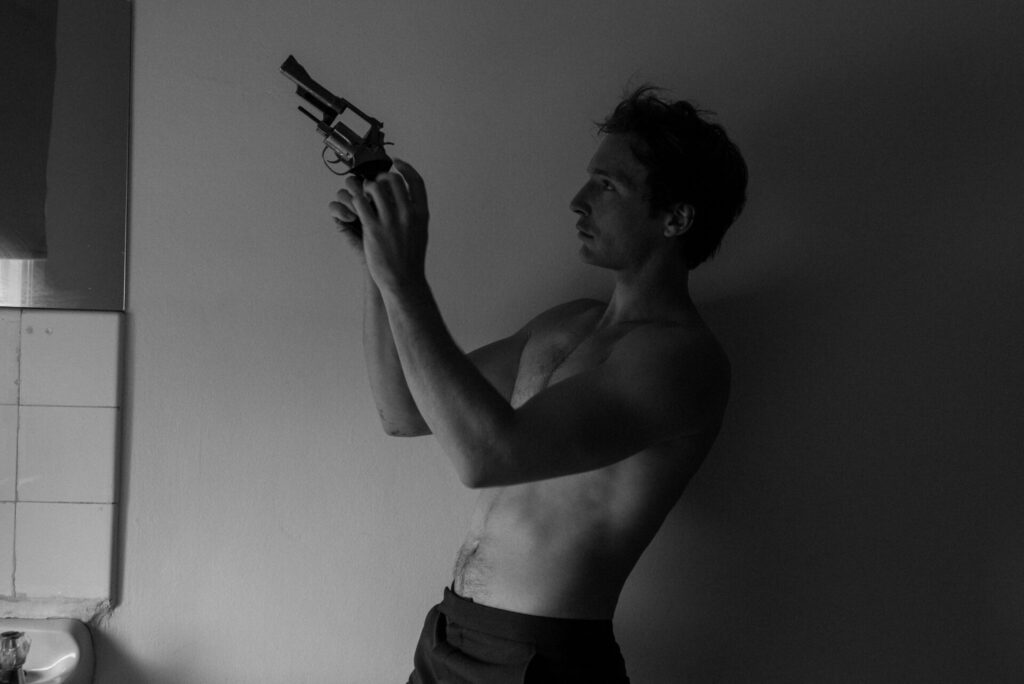
When you’re shooting, what keeps you centred and focused?
Music is a big one. I’ll make playlists just for the character or the job and solely listen to those. That, and playing guitar. I’ll always bring something to play.
What was your experience working for the first time in theatre and touring for Così?
It was late in the piece, I was in the US at the time and did the audition there. I came straight back and into rehearsals—I had read the play only twice! But I really cherished being thrown in the deep end for my first time in theatre. It’s a humbling experience; you’re a cog in this giant wheel and the directors are looking at the big picture rather than a close-up of you. It was one of the best experiences of my acting life so far.
Theatre or film?!
There’s a real group celebration in theatre, which you can’t get at the cinema. Maybe
if you’re cheering along and clapping with people [laughing], but we don’t do that in cinemas in Australia. Film really is mesmerising; you can forget everything you’re thinking about and it’s the only thing you see. You can’t choose a favourite; they both leave you with a satisfaction that’s different but equal in parts.
Who are your influences and inspirations in life?
My mum was the one who’d rent out handy-cams on weekends – we’d make little plays and home movies and get everyone acting in them. She’s an oddball, would frantically write scripts, but she’s not a stage mum in any way. Our house was full of a lot of laughter and good times thanks to that.
… and in industry?
When I was younger, my parents were really good, my mum in particular. In terms of, like, performance, I never really chose to be an actor outright, it was kind of something that just happened. My mum was very creative, from a young age she was very much encouraging us to be who we wanted to be. I’ve worked with a lot of older actors in Australia who have had great careers and who I really love to see on screen. Every role they do is so well crafted. David Wenham, Hugo Weaving, seeing Nicole Kidman work—it's incredible. They’re masters of what they do. Inspirational in terms of lasting impressions are the actors closer to my age. It’s easier to see their process when you’re looking through a similar generational lens. Working with George MacKay on True History. And Caleb, who was working on the film in Geelong. These are two guys my age who are doing really amazing work, which is really inspiring.
You guys must have gotten close during the filming process?
The bond we made on that job was incredible. We still keep in touch very regularly and FaceTime all the time. And they pressed all the punk songs we made in rehearsals, which we recorded at the very end of the job.
I didn’t realise how multifaceted the production was. I would love to hear those, where can I find them?
We got a whole stack, it’s kind of a relic of that time. I’ll send you one after this!
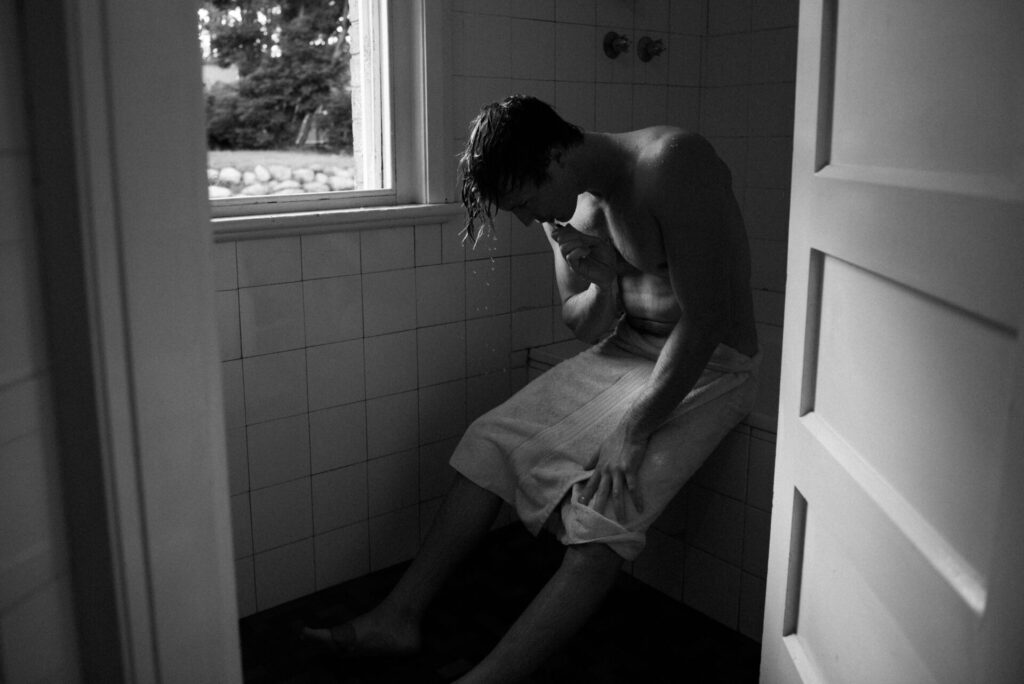
Edouard Philipponnat Has Won the Acting Lottery, and He Knows It
By Aaron Weinberg
